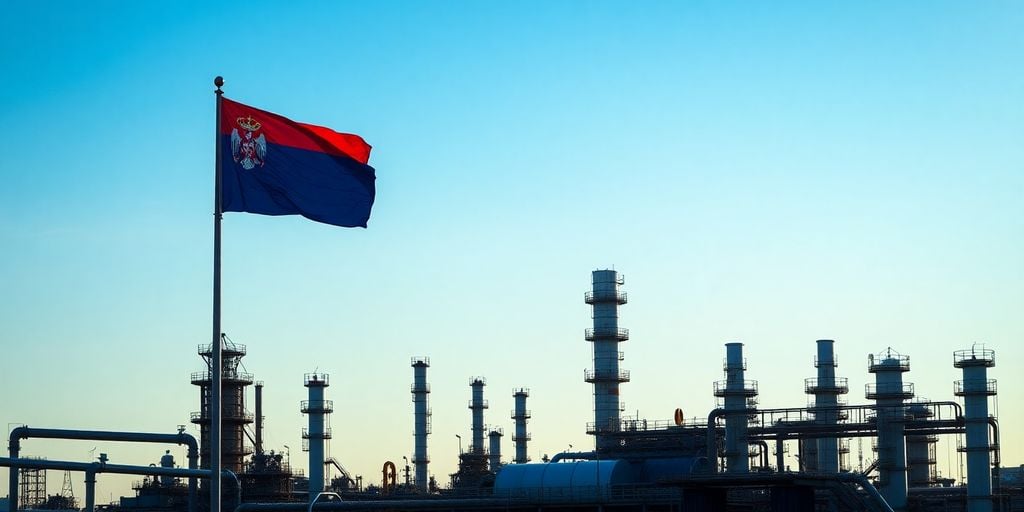Serbia has successfully obtained a fifth postponement of U.S. sanctions targeting NIS, the country’s sole oil refinery, which is Russian-owned. The latest extension, lasting one month, was confirmed by Serbian Energy Minister Dubravka Djedovic Handanovic. This development is crucial for maintaining Serbia’s oil supply, as NIS imports a significant portion of its crude oil through Croatia’s Janaf pipeline. The Serbian government’s priority remains ensuring a stable supply of oil derivatives and ultimately removing NIS from the U.S. Treasury’s sanctions list, a goal contingent on progress in U.S.-Russia dialogue.
Key Takeaways
- Serbia has secured a one-month postponement of U.S. sanctions against Russian-owned oil firm NIS.
- This marks the fifth such postponement, highlighting ongoing efforts to ensure Serbia’s oil supply.
- NIS imports 80% of its crude oil via Croatia’s Janaf pipeline, making sanctions a potential threat to supply.
- Serbia’s energy minister emphasized the need for U.S.-Russia dialogue to resolve the issue.
Background on NIS Sanctions
The U.S. Treasury’s Office of Foreign Assets Control (OFAC) initially imposed sanctions on Russia’s oil sector on January 10, requiring Gazprom Neft to exit its ownership of NIS within 45 days. NIS, with Gazprom Neft holding a 44.9% stake and the Serbian government owning 29.9%, operates Serbia’s only oil refinery in Pancevo. This facility, with an annual capacity of 4.8 million tons, meets the majority of Serbia’s energy needs.
Serbia’s Efforts to Mitigate Sanctions Impact
To preemptively address potential sanctions, Gazprom Neft transferred approximately 5.15% of its stake in NIS to Gazprom in late February. Serbia’s acquisition of a 51% stake in NIS from Gazprom in 2008 for 400 million euros underscores the strategic importance of the company to the nation’s energy security. The current postponement provides a temporary reprieve, but a long-term solution hinges on diplomatic progress between the United States and Russia.
Implications for Serbia’s Energy Supply
The sanctions, if fully implemented, could significantly jeopardize Serbia’s crude oil supplies. NIS relies heavily on the Janaf pipeline for approximately 80% of its oil imports, with the remaining supply coming from its domestic crude oil production in Serbia. The Serbian government’s proactive engagement and the repeated postponements reflect the critical nature of NIS operations for the country’s economic stability and energy independence.






